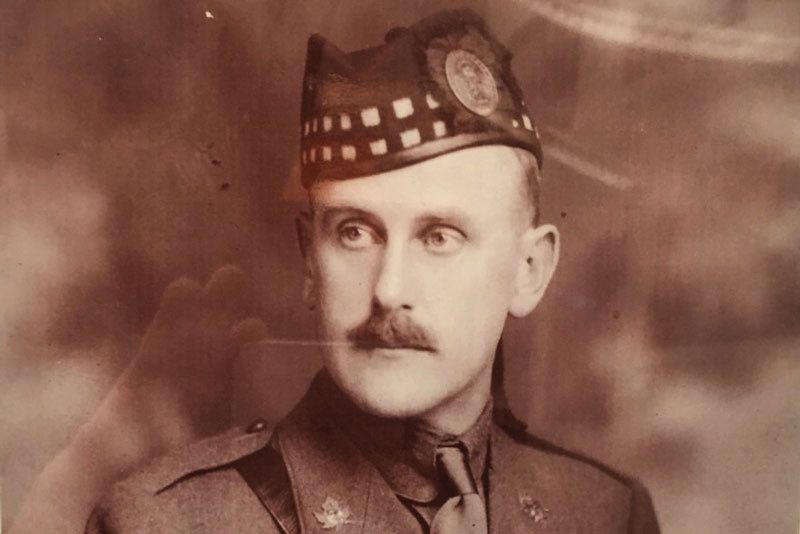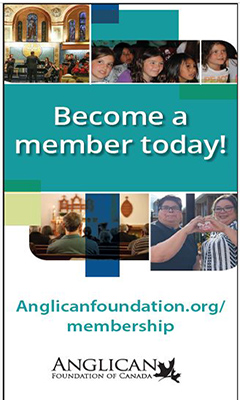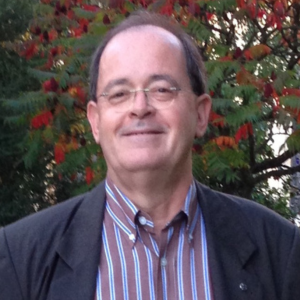A generous benefactor, a long tradition, a continuing evolution
As promised, this is a continuation of last month’s article about the John Albert Hall Lectures, a joint initiative of the Centre for Studies in Religion and Society (CSRS) at the University of Victoria and the Anglican Diocese of British Columbia. The lectures have existed in their present form since 1996, although the genesis of the project goes back much further than that.
In the 1930s, John Albert Hall, a leading citizen of Victoria in those days, made a bequest to establish a permanent trust to support an ongoing series of lectures on “the relationship between religion and contemporary thought.” Hall was a pioneer and a soldier, a chemist, a businessman and a philanthropist. Born in Manchester in 1869, he immigrated to Canada in the last decade of the 19th century. He was the first commanding officer of the 88th Victoria Fusiliers, and served overseas in the First World War.
For some decades, Hall’s gift was used to provide a stipend for the position of “canon lecturer” at Christ Church Cathedral. In the mid-1990s, the present arrangement with the university was put in place, around the same time as the CSRS was being established there. The centre was intended from the outset as a place where issues of religion, faith and spirituality could be engaged with scholarly rigour. It was initially championed by the farsighted Roman Catholic bishop Remi de Roo, in a spirit of ecumenical collaboration with his colleagues Bill Howie (one-time skipper-pastor of the United Church’s seagoing mission on the West Coast) and Anglican bishop Ron Shepherd.
A memorandum of understanding between the diocese and the centre was signed in 1996, and for some years thereafter, the format of the John Albert Hall lectureship involved a single distinguished visiting academic giving a series of several public talks, which were subsequently published in book form. Later, the Hall endowment was used to support the centre’s regular ongoing program of public lectures by resident and visiting fellows and associates.
Beginning in 2016, efforts were made to reinvigorate the involvement of the diocese in the series, and to restore its prestige and profile. Since then, highlights have included:
- A visit by the former presiding bishop of the Episcopal Church of the United States, Katharine Jefferts Schori: the first woman elected primate of a province of the Anglican Communion.
- A series of four lectures by prominent historians to mark the 500th anniversary of the Protestant Reformation.
- Well publicized and well attended appearances around the diocese by public figures of the stature of Pulitzer Prize-winning American journalist Christopher Hedges and eminent British church historian Diarmaid MacCulloch.
- Presentations about gender, race, politics, the environment and interfaith relations.
- Interviews with senior Canadian faith leaders such as Lois Wilson, Remi de Roo and Herbert O’Driscoll.
The impact of the John Albert Hall Lectures in our diocese, and much further afield, has been extraordinary. In-person attendance at the lectures (and now the livestreams) has ranged as high as 1000, and many more have watched the subsequent recordings.
The far-sighted vision and generous gift of John Albert Hall has enabled all this activity to take place, in ways that have evolved in response to changing circumstances. Thanks largely to income from the capital we hold in trust on behalf of his estate, our diocese contributes $25,000 each year to this work. The annual transfer is topped up with money from another of the diocesan educational trusts, the C.H.G. Mann Fund. There are also separate Hall and Mann endowments held by the university, which support other activities of the centre.
The John Albert Hall Lectures are a unique collaboration between church and university, and among multiple denominations, faiths and perspectives. As we explore new topics and speakers, and find new ways to deliver content, this long-running and very worthwhile endeavour will continue to change and grow under renewed leadership in the future.




